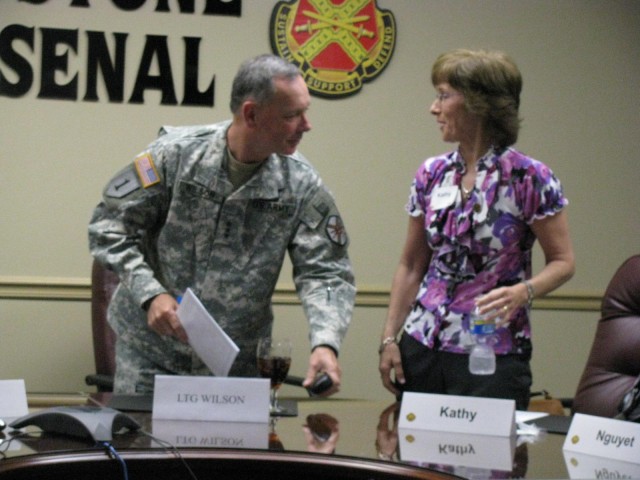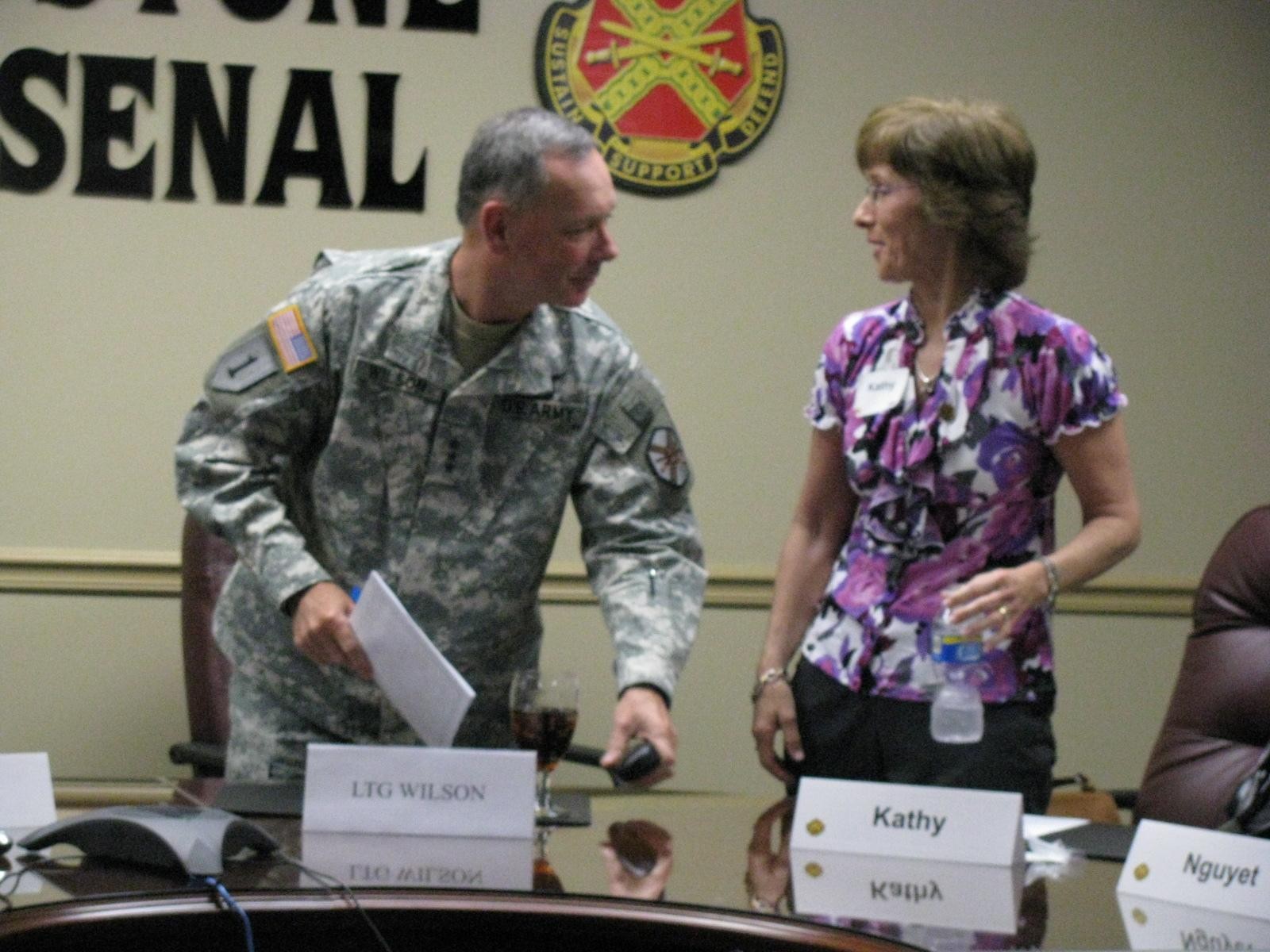
A planned daylong visit to Redstone Arsenal by Lt. Gen. Robert Wilson, commander of the Installation Management Command, on May 20 was cut short due to unforeseen circumstances.
Because of that, scheduled meetings were shortened. Some meetings, including a luncheon with various Arsenal and community leaders, were cancelled.
But, Wilson's meeting with local military spouses, though moved to an earlier time, remained firmly part of his Arsenal visit.
"The Army appreciates the commitment and sacrifices you all make," Wilson told the group of Army spouses at the 30-minute meeting. "You represent our Army family connection. It's a family affair. We all sacrifice. We recognize what you do."
The spouses were asked to present Wilson with their concerns and issues as they relate to their families. Instead, most of them brought him praise.
"Thank you for the respite care program," said Army spouse Colleen Nicholson.
"I'm the mother of an exceptional family member. My daughter has a number of behavioral problems that are sometimes more challenging than physical problems. It's a relief to be able to use respite care funds to pay for someone to care for her. It's been very helpful to me. Being able to pay for the care makes me feel better about asking for help."
Because of respite care, Nicholson has been able to run errands and go to the grocery store without her daughter. That is helpful because her daughter can sometimes be difficult to deal with in public places.
"I can take care of business and not feel bad about it," Nicholson said.
Providing respite care funds through Army Community Service is especially important to military families, she said, because they are often living far from a family support group that could provide that care.
"Our extended family is far away, so we don't have that natural support system," she said.
The absence of a family support network also makes the child development centers offered Armywide a tremendous asset to families, said spouse Carie Green.
"CDC has improved so much," Green told Wilson.
"Now, instead of being a baby sitting service, children are learning. My 20-month-old baby is potty trained and knows numbers and lots of songs. The staff at Redstone Arsenal is excellent. The level of learning can't even be compared to what happens off installation. At the CDC here, the children are engaged in playing and learning."
Wilson told the spouses that the Army is dedicated to "leading industry in children development and education."
The spouses also talked with Wilson about post access, recycling programs, survey programs, housing and the new utility program, and spouse employment and education programs.
Alice Myles, wife of Redstone Arsenal and AMCOM commander Maj. Gen. Jim Myles, talked to Wilson about the Arsenal's family readiness group.
"We are in a unique situation here because we have so many tenant organizations and not a big group of spouses," she said. "So, we've developed a community-wide FRG that is reaching out and touching people who are deploying for anywhere from 24 hours to a year."
Wilson said installations like Redstone Arsenal that don't have deployable units rely on Army Community Service to support families going through a deployment. Myles said ACS is fulfilling that role by providing groups like Heart to Heart and Waiting Spouses.
Nicholson, whose husband has deployed twice, said she appreciates the "idea of more support from readiness groups at the installation where I am living. But I still want to be involved in an FRG from an installation where my husband deploys from because I like to be connected with families whose Soldiers are serving with my husband. That way you feel like you are part of what's going on with your husband."
Wilson said a virtual readiness group using e-mails and websites should be available to spouses like Nicholson, and told her he would provide information of such programs if her husband deploys again.
The Army One Source does work to connect geographically disbursed spouses to provide them with information and resources.
"It's important to connect spouses to those resources," said Green, who is Alabama's Army One Source coordinator. "But so many times people aren't aware of what's in place. There are so many programs that exist that people don't know about."
After the meeting, many spouses expressed their appreciation for the chance to talk with Wilson.
"He really, really listens. He's very good about listening to everything and acting on it," said spouse Amy Sears. "He listened to all of us equally. He was very open with us."
"I'm glad they feel military spouses are important enough to send someone special to take the time out of his busy schedule to talk to us and make sure our needs are being met," Nicholson said.
Other military spouses who participated in the meeting included Kathy Campbell, Anna Pastorelli, Nguyet Borja, Erica Wilson, Jennifer Henderson, Emily McFall and Dayle Tindoll.

Social Sharing